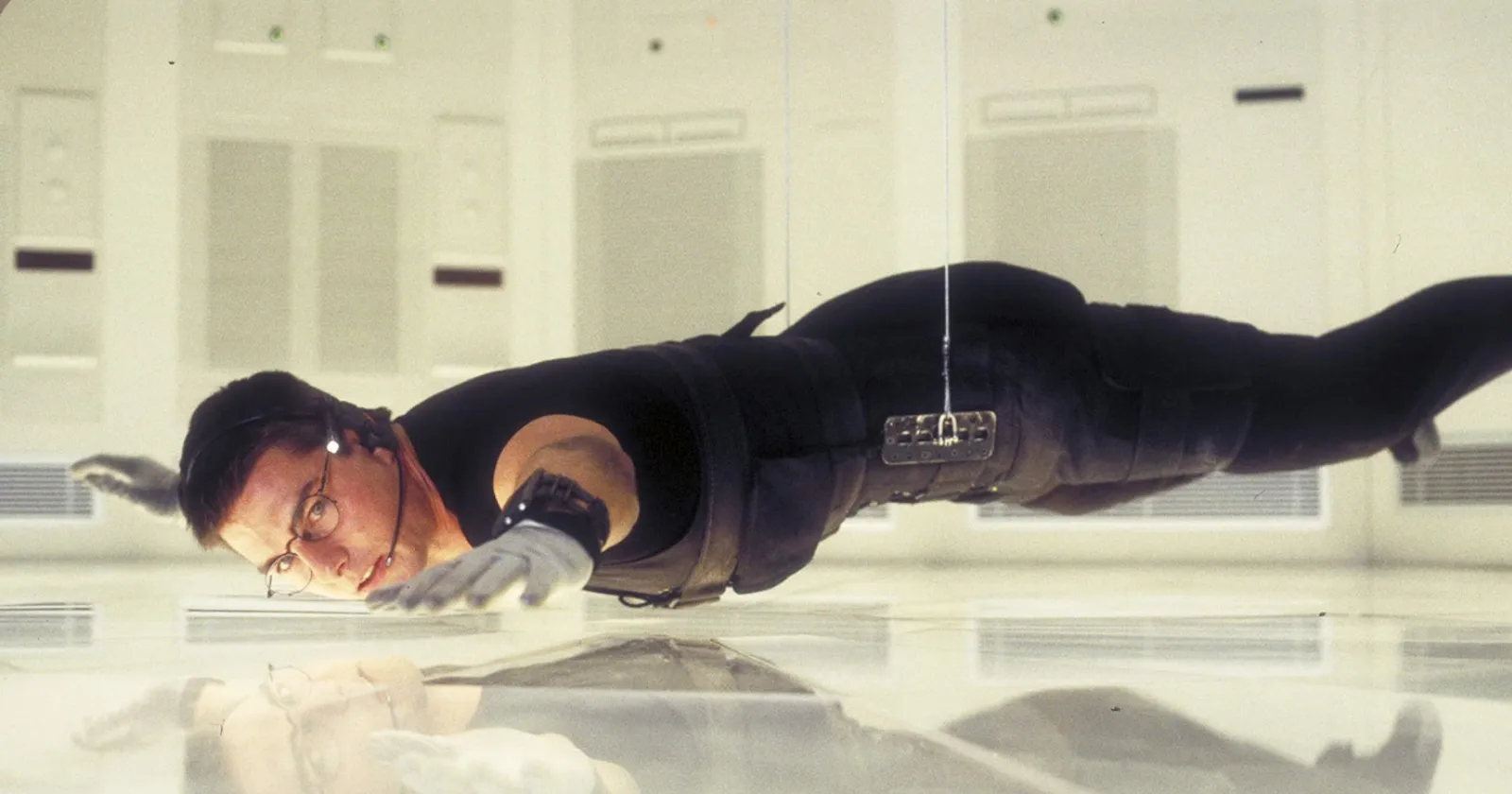Mission: Impossible (1996) isn’t the most polished or emotionally resonant film in the series, but it’s a thrilling, stylish origin from Director Brian De Palma that’s stood the test of time. It introduced one of the defining action heroes of the modern era—Tom Cruise as Ethan Hunt—and showed that genre filmmaking could be both smart and wildly entertaining.

‘Mission: Impossible’ Movie Review
Mission: Impossible marked the launch of one of modern cinema’s most enduring and evolving action franchises. Directed by Brian De Palma and headlined by Tom Cruise as IMF agent Ethan Hunt, the film laid the foundation for what would become a signature series filled with high-stakes espionage, elaborate set pieces, and a commitment to practical stunt work that would grow increasingly daring with each sequel. Though the franchise would shift gears with different directors and tones, the original Mission: Impossible remains a sleek, stylish, and highly entertaining entry point into the unpredictable world of Ethan Hunt.
At its core, the plot is relatively simple but cleverly executed: after a covert IMF operation goes disastrously wrong, Ethan finds himself the sole survivor and the prime suspect in a conspiracy that implicates his entire team. The mission was led by his superior Jim Phelps (played by Jon Voight), and the apparent betrayal and ensuing cat-and-mouse unraveling set the tone for the series’ emphasis on deception, double-crosses, and shadowy alliances. On the run from his own government, Hunt assembles a new team to uncover the truth and clear his name.
This first installment introduces several of the franchise’s now-iconic elements. Ving Rhames (Pulp Fiction, The Instigators) makes his debut as hacker Luther Stickell, a role he’s continued to reprise with charisma and wit across the series. The use of hyper-realistic face masks, tech-driven infiltration, and globe-trotting missions begins here, as does the series’ obsession with spectacle. De Palma’s signature flair for suspense is never more evident than in the film’s standout sequence: Ethan being lowered into a temperature- and sound-sensitive CIA vault, unable to make a single noise. It’s an instantly recognizable set piece that has been referenced, spoofed, and praised for decades (and rightfully so). It remains one of the most indelible images of ‘90s cinema.
What makes De Palma’s Mission: Impossible so effective is its balance of pulpy intrigue and self-aware cool. The director, known for stylized thrillers like Blow Out and Dressed to Kill, brings a noir sensibility to what could’ve been a straightforward action flick. His camera work adds a slick edge, using canted angles and slow builds of tension to elevate the material beyond typical blockbuster fare. There’s a sense of fun throughout, a refusal to be too self-serious even when the stakes are global.
While the later entries—particularly those directed by Christopher McQuarrie, starting with Rogue Nation—refined the franchise into a more consistently explosive and character-driven series, this first film deserves credit for establishing the blueprint. It’s true that the narrative gets tangled at times and the twists may not be as sharp as what’s to come, but there’s a freshness here (and a sense of experimentation) that makes it enduring.
READ MORE MOVIE REVIEWS: Bound, The Daytrippers, Scream
Cruise, still in the early stages of his evolution into a full-blown action icon, proves that he’s more than capable of anchoring a franchise. His willingness to perform dangerous stunts (a hallmark of the series) and his ability to project a mix of intensity and intelligence as Ethan Hunt are already on display. Watching this film in hindsight adds an extra layer of appreciation—not just for what it achieves on its own terms, but for the cinematic legacy it kicks off.
Score: 8/10
Mission: Impossible (1996)
- Cast: Tom Cruise, Jon Voight, Emmanuelle Béart, Henry Czerny, Jean Reno, Ving Rhames
- Director: Brian De Palma
- Genre: Action, Adventure, Thriller
- Runtime: 110 minutes
- Rated: PG-13
- Release Date: May 22, 1996
- Movies Like Mission: Impossible: Black Bag, The Fall Guy, Ambulance, More Movies Like Mission: Impossible